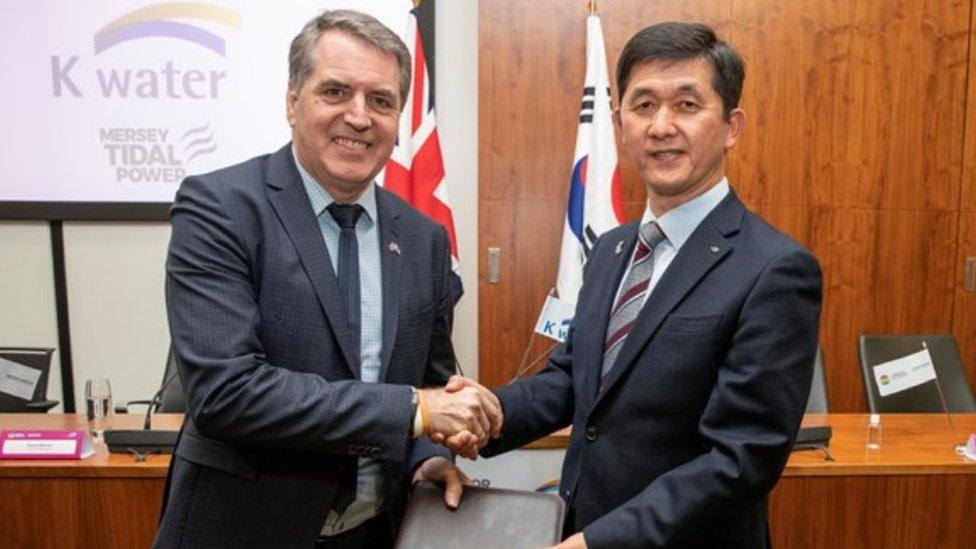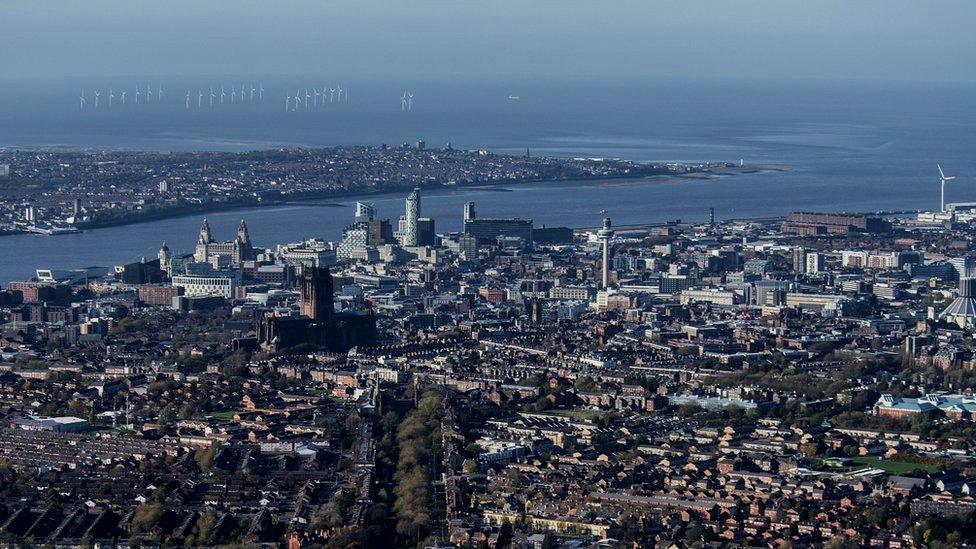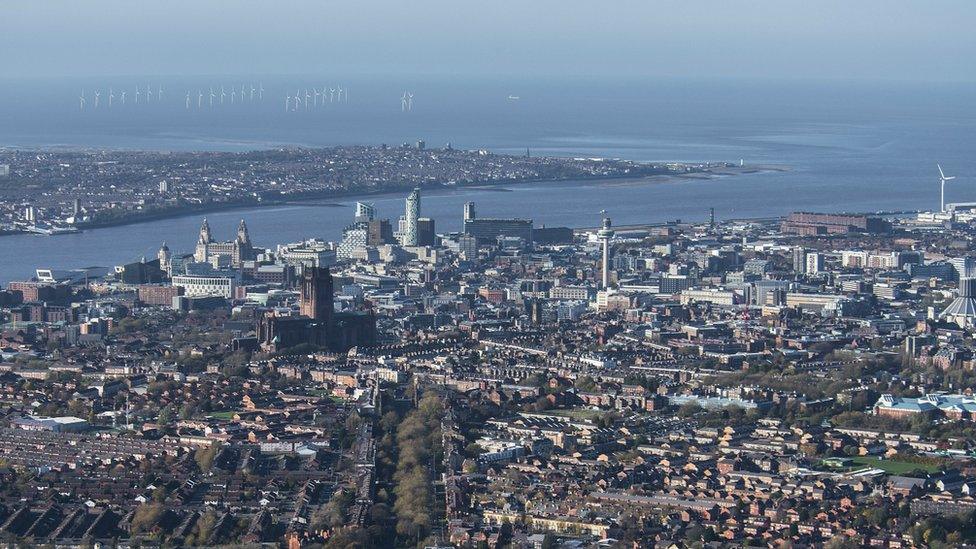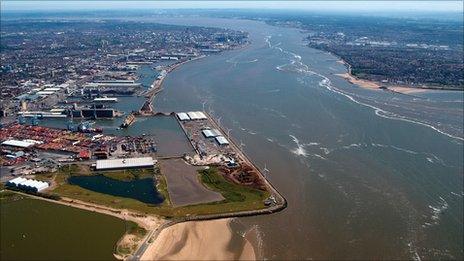Mersey tidal power: Agreement signed with South Korean giant
- Published

Steve Rotheram and Jeong kyeongyun signed the memorandum of agreement earlier
Liverpool City Region has signed an agreement with the company behind the world's largest tidal power plant in a bid to power up to one million homes.
Metro Mayor Steve Rotheram wants to harness tidal power on the River Mersey in Liverpool by building a barrage.
He said the agreement to share lessons with South Korea's state water company, which runs the Sihwa Lake tidal range power scheme, was a "massive step".
However, he admitted he needed the government's help to build the scheme.
"This is an achievable and realistic scheme but nobody's taken it seriously," he told BBC Radio Merseyside.
"It's as close now as it's ever been. There are technical challenges and environmental concerns we need to address, but all of those things can be overcome.
"All we need now is a government to say 'yes'.
"I think this is the most exciting thing we've ever seen on the River Mersey in our lifetime - maybe ever."

The plans aim to play a huge role in the region's push to net zero carbon by 2040
The Sihwa Lake tidal range power plant, which is operated by Korea Water Resources Corporation, known as K-water, generates 552GWh of clean, green energy every year, replacing the equivalent of 862,000 barrels of oil a year.
Jeong kyeongyun, the company's senior executive vice president, said he believed the move would help "expand exchanges between the two countries to proactively respond to the global climate crisis and to sustainably realise carbon neutrality".
Liverpool City Region Combined Authority said the Mersey Tidal Power Project had the potential to generate enough clean, predictable energy to power up to one million homes and create thousands of jobs in its construction and operation.
'Very cheap energy'
Dr Judith Wolf, from the National Oceanography Centre, said the project, which would see a dam structure with turbines built in the river, could take up to 10 years to complete but would generate "very cheap energy" for "a hundred years".
"We can predict how the energy will come from the ocean to the River Mersey for a long time into the future," she said.
"In Liverpool we have a very high tidal range," she said, adding the city was in "a very good position to extract energy".
Over the last two years, the authority said it had undertaken early technical work to develop the potential scope of the scheme, which could be up and running within a decade.
It said the agreement paved the way for close co-operation between the two tidal power projects, through reciprocal visits and information sharing.

Why not follow BBC North West on Facebook, external, Twitter, external and Instagram, external? You can also send story ideas to northwest.newsonline@bbc.co.uk, external
Related topics
- Published28 February 2020

- Published14 November 2017

- Published22 June 2011
